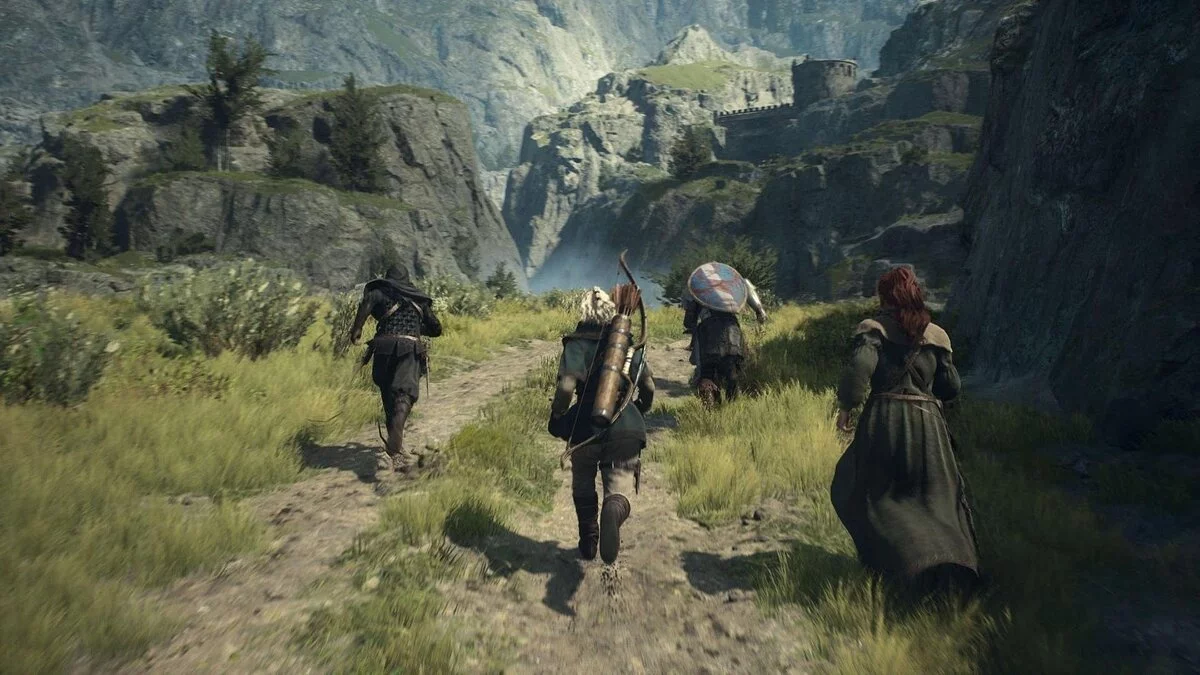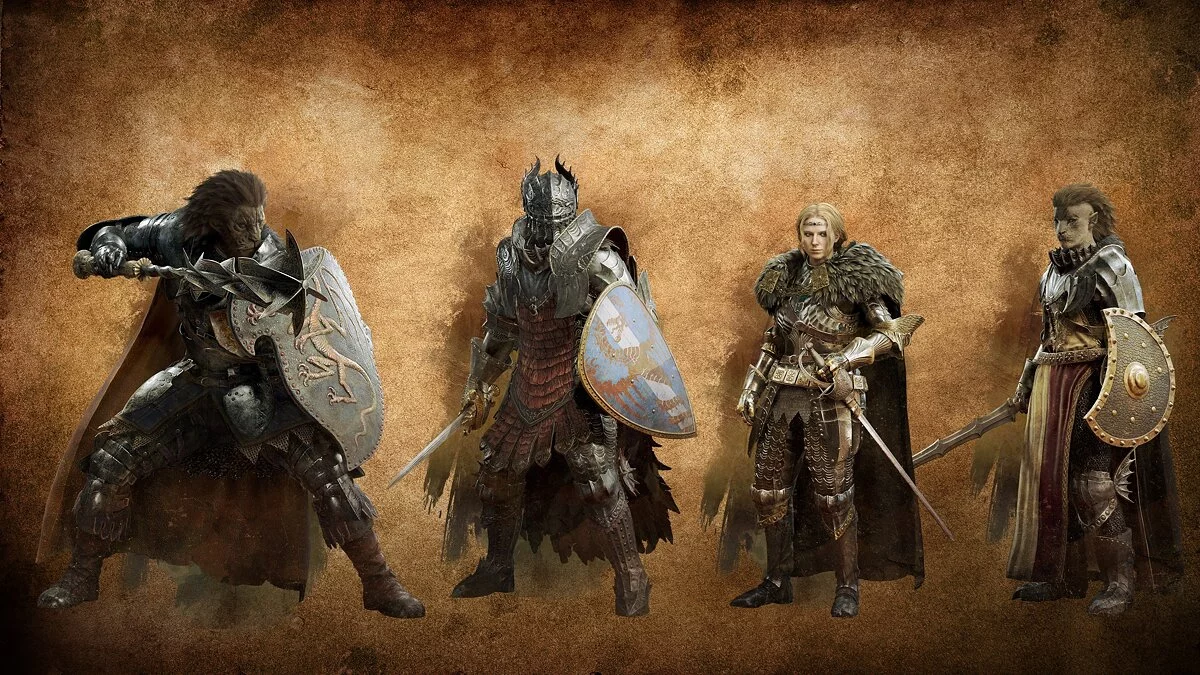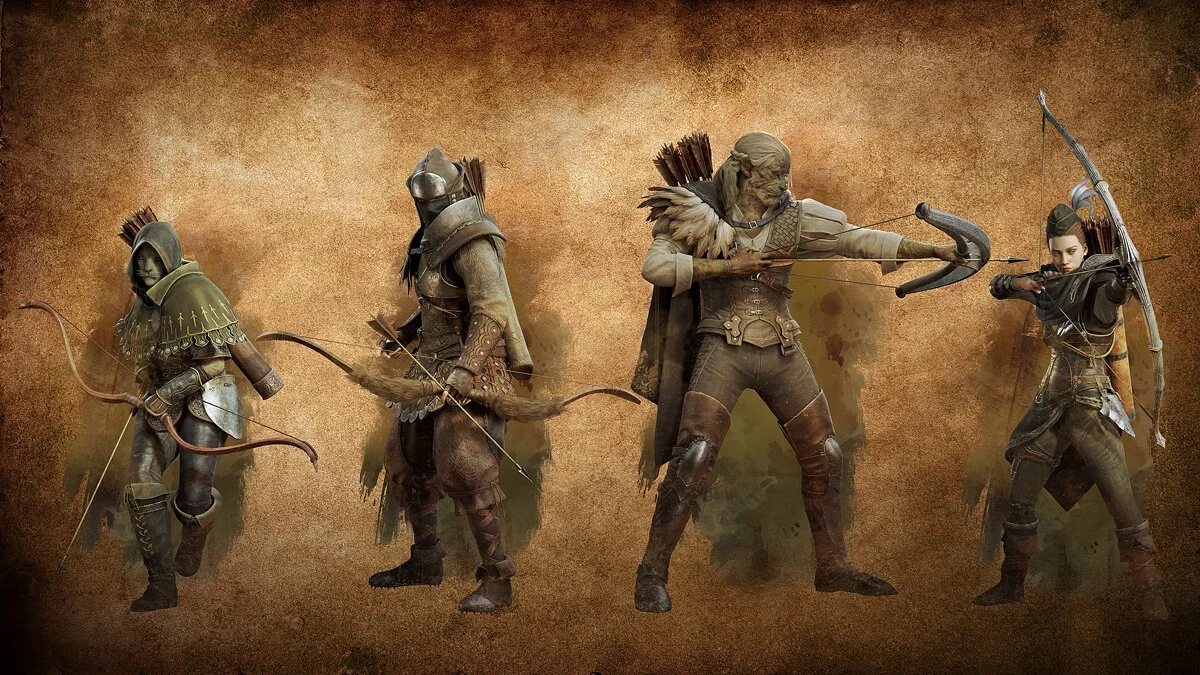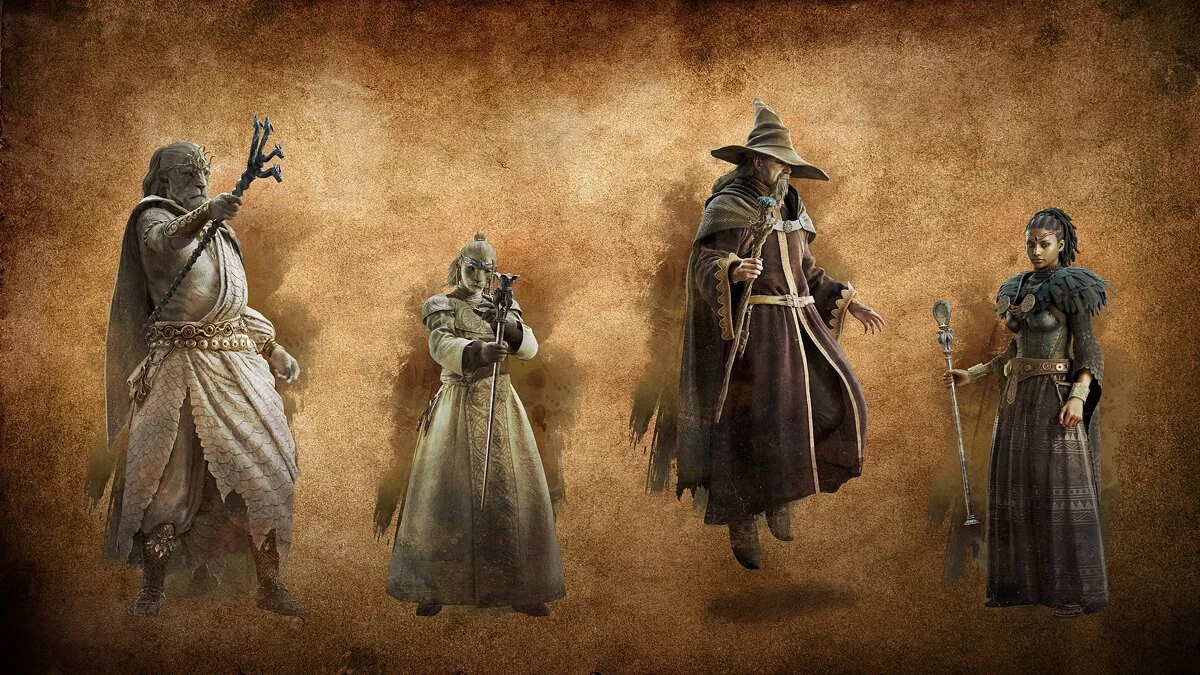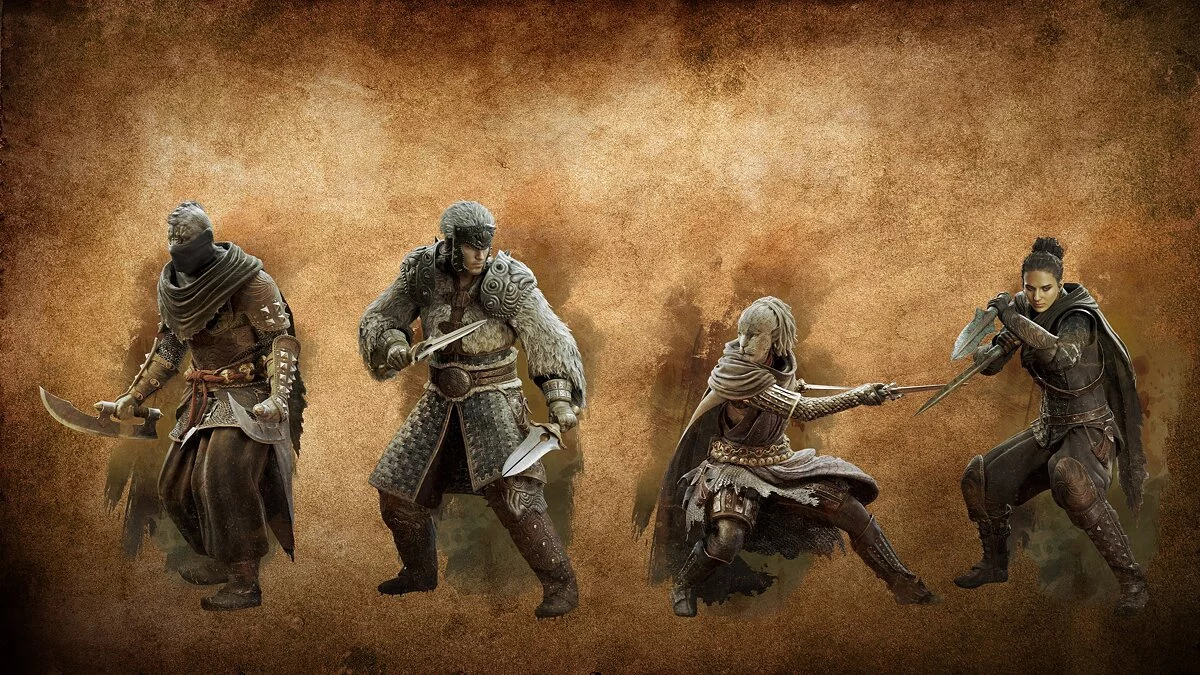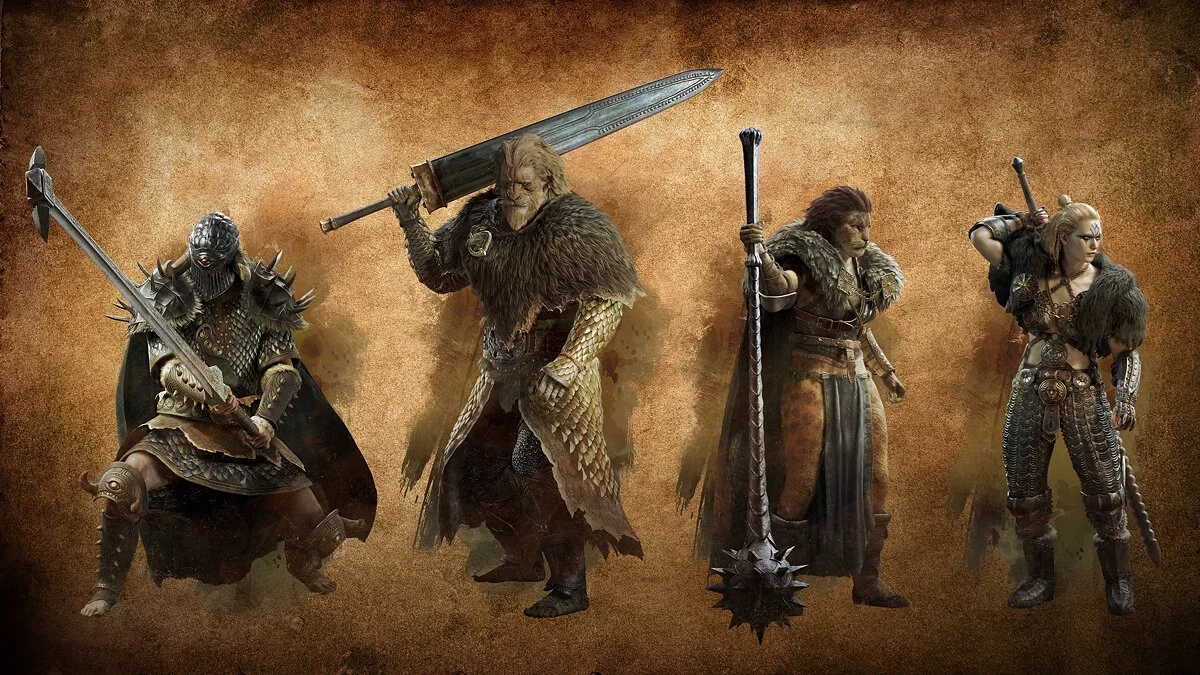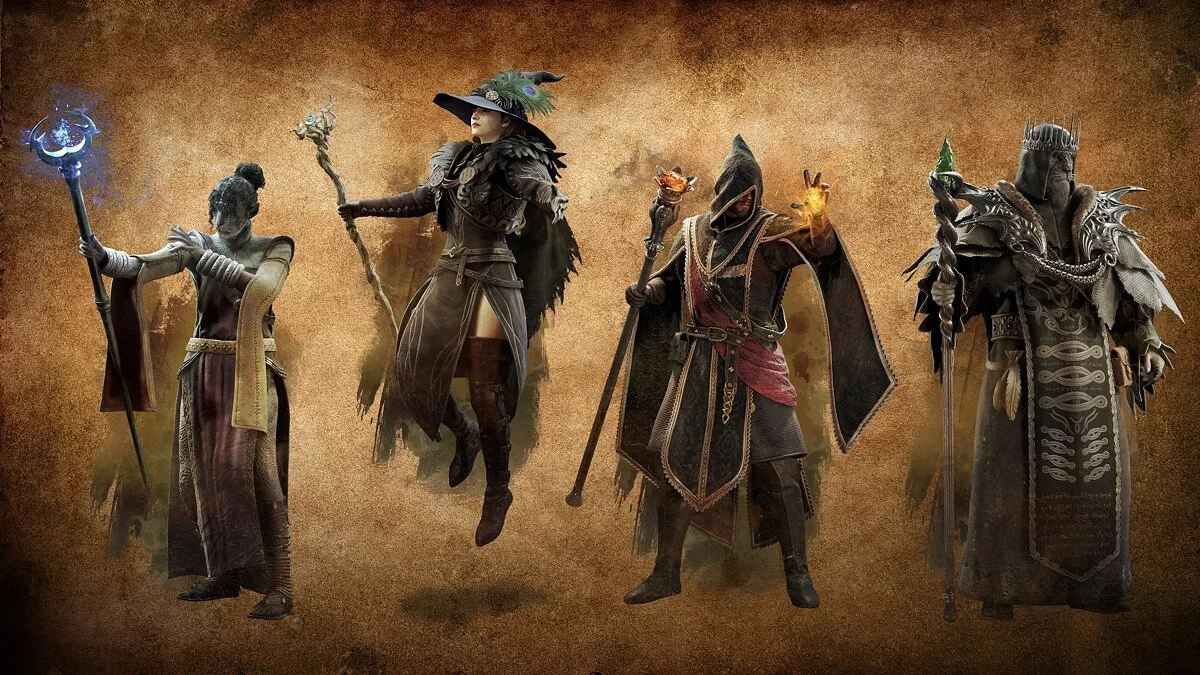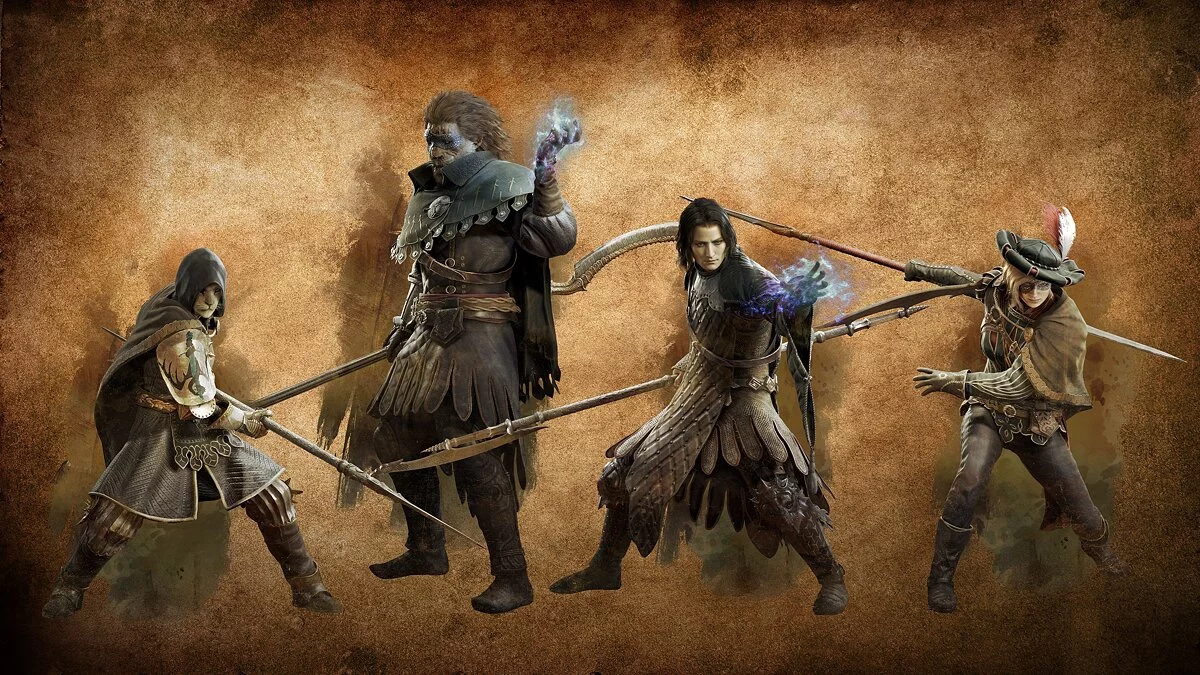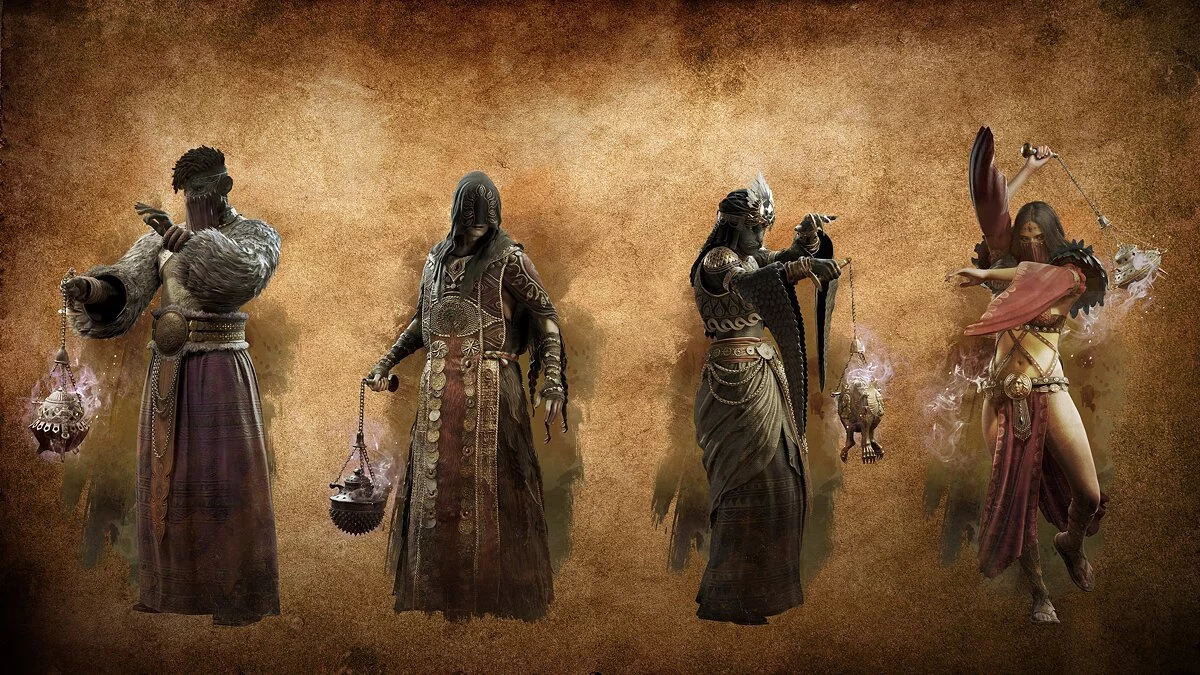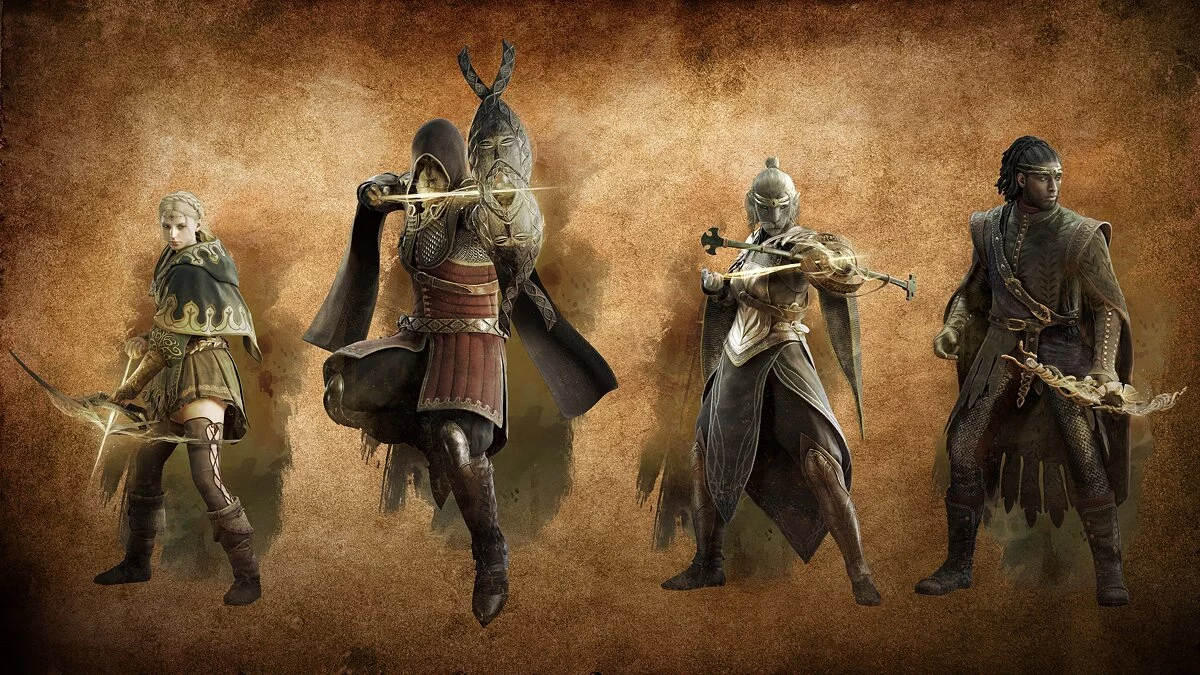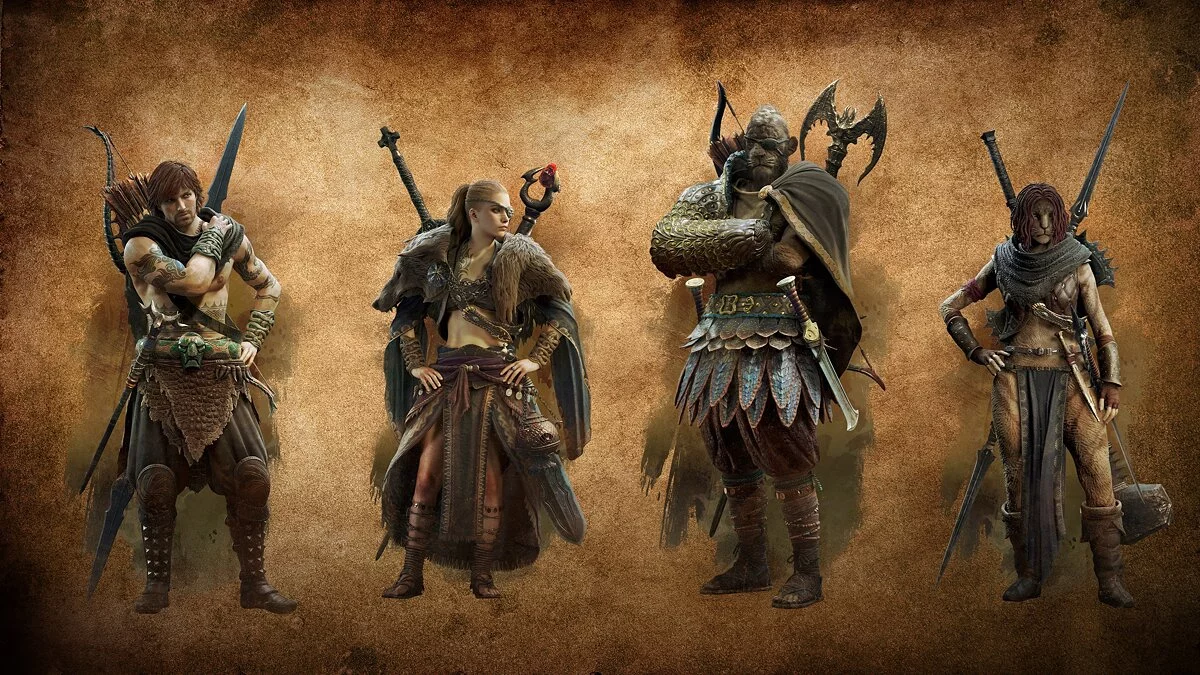Best Professions in Dragon's Dogma 2: Which to Choose and How They Work

Professions in Dragon's Dogma 2 are classes that players can choose for their playthrough. However, it can be difficult to decide at the beginning, so in this guide, we will detail all the available professions, as well as nuances of the combat system.
Dragon's Dogma 2 Guides
- Tips for Beginners on Dragon's Dogma 2 — Guide
- How to Create a New Character in Dragon's Dogma 2
- How to Survive the Night in Dragon's Dogma 2 — Guide
- Fast Travel in Dragon's Dogma 2: How to Get Portcrystals
- Multiplayer in Dragon's Dogma 2: Will There Be a Cooperative Mode?
- How to Farm Experience in the Early Stages of Dragon's Dogma 2
- All Endings of Dragon's Dogma 2: How to Get the True Ending
- Optimizing Dragon's Dogma 2 Graphics for Low-End PCs: How to Increase FPS
- Dragon's Dogma 2: All Bugs, Known Glitches and Problem Solutions
- Best Pawns in Dragon's Dogma 2: Which Traits to Choose for Each Class
- A Beggar's Tale in Dragon's Dogma 2: How to Start and Who to Give the Garment To
- The Sphinx in Dragon's Dogma 2: Where to Find and How to Solve All Puzzles
- Best Professions in Dragon's Dogma 2: Which to Choose and How They Work
- Romances in Dragon's Dogma 2: Is There Sex and How to Start Relationships
- Interactive Map of Dragon's Dogma 2: Key Locations and Places in the Game
- Where to Find the Preserved Medusa Head in Dragon's Dogma 2
- Where to Find Seeker's Tokens in Dragon's Dogma 2
How Professions Work
At the start of the game, you are free to choose one of four professions: fighter, mage, thief, and archer. You'll also need to decide on a class for your main pawn. However, the twist is that this decision isn't final. As you progress, you can change your profession while retaining some abilities from the previous one. Moreover, each class gradually levels up. There are a total of 10 ranks, so sooner or later, a limit will be reached. Combining different professions is a necessary process for forming an individual build.
Besides the 4 starting classes, there are also 6 hidden ones. You'll receive them by meeting certain conditions, so the choice is quite wide. Remember, you can change the profession of your pawn too, but their list is limited. Ultimately, you will be able to compile various abilities both for yourself and your helper.
Which Profession to Choose at the Beginning of the Game
The primary professions represent classic types of fantasy heroes. Each of them is good and bad at logical moments. For example, a mage deals decent damage but is useless in close combat, an archer shoots arrows from a distance but needs support, and a fighter performs poorly in fights against fast and flying monsters.
In the early stages, it all depends on your preferences, but a useful piece of advice would be to ensure that your pawn complements your weaknesses. Playing as a fighter? Take a mage with you. A thief will benefit from an archer, and so on.
Despite all the versatility, we would advise starting the game with a thief, as they are quite fast, with good defense, and a multitude of interesting abilities. They will, of course, require support, but the main thing is that thieves are good at climbing monsters. This way, you can fully utilize Dragon's Dogma 2's main feature right from the start.
Fighter
One of the starting classes that specializes in swords, shields, and other heavy weaponry. Suitable for those who aim for a balanced fighting style. Thanks to the shield, you'll be able to block enemy attacks at close range, but you'll need to watch your stamina, which is also consumed on blocking. The fighter is capable of delivering finishing attacks on downed or unbalanced monsters.
For balance, the main pawn's profession should be either a mage or an archer. This significantly increases the warrior's effectiveness.
Pay attention to the fighter's abilities, which will be useful for any class:
- Increase in physical defense;
- Increased likelihood of attracting enemy attention;
- Increased carrying weight;
- Ability to pin and lift enemies for an extended period;
- Accelerated recovery after falling and crawling.
Archer
The second starting profession. Archers, logically, use bows. The best class for combating flying enemies. The distance maintained between your character and the monsters allows for a better assessment of the battlefield situation, hitting enemy weak points, and sometimes even knocking them down. Positioning is most crucial in this profession, so the pawn should be made a thief or a fighter.
Useful archer abilities:
- Increase in damage when targets are in a combat stance;
- Increases maximum stamina;
- The lantern uses less oil and illuminates a larger area;
- Increased damage to enemy weak spots;
- Increased climbing speed on cliffs and enemies.
Mage
Mages are quite complex to master. Despite being one of the starting professions, their fighting style significantly differs from others. Preparing a spell takes time. The more complex the magic, the more preparation is needed. During this process, you can either stand still or move very slowly. In any case, mages use staffs as weapons, which are almost useless in close combat. Another feature of the profession is the ability to heal yourself and comrades. This is an important and one of the best support abilities. The pawn should be made either a fighter or a thief, so they can protect you. If there's another mage in the squad, reading the same spell together can speed up its preparation.
Besides, the mage can enchant weapons with specific effects, like fire. This is especially useful against monsters weak to elemental damage.
Best abilities:
- Increase in magical defense;
- Increase in the amount of health the mage restores with spells;
- Reduction in debilitation time;
- Increase in the duration of enchantments and inspirations;
- Increased stamina recovery speed.
Thief
The last starting profession, which, like the fighter, is focused on close combat. You will have to fight with daggers, and forget about shields. The main principle of playing as a thief is understanding when it's safe to attack and when it's better to retreat. Thieves can deal a large amount of damage and move quickly across the battlefield, but are not very protected against strong attacks. Moreover, you should be careful not to get surrounded, as one of the basic skills allows you to pin an enemy to the ground and inflict additional damage, but this will make you vulnerable to other enemies.
The main advantage that a thief offers is the ability to climb on enemies. Being in close contact with the opponent, you can use the entire available arsenal — bombs, ropes, and more. No other class can do this as well. All actions consume stamina, so you will need to keep an eye on it. It's best to make your pawn a mage or later a sorcerer.
Useful skills:
- Reduces the likelihood of becoming a target for enemies;
- Slightly restores health when dealing a fatal blow;
- Reduction in stamina consumption;
- Reduction in stamina consumption while climbing or pinning enemies;
- Increase in strength.
Which Professions to Choose in the Later Stages of the Game
Warrior
Warriors are the logical progression of fighters. You can unlock the profession if you find a two-handed sword or complete the quest «Disappointment by Vocation». A distinctive feature of warriors is the use of two-handed weapons. This naturally reduces the attack speed, but allows you to deal damage to several enemies at once. If you've just started playing Dragon's Dogma 2, the warrior may be difficult to master. You need to know the monsters' timings. «Charged Attack» and «Barge» are combat skills that deal increased damage and provide the warrior with resistance against most attacks.
Being a warrior means always being at the forefront, but you're unlikely to last long on your own. It's best to set your pawn as a mage or archer to provide you with cover.
Useful abilities:
- Increase in maximum health;
- Improvement in the ability to push and hit targets when grappling;
- Improvement in the ability to penetrate enemy defenses;
- Increase in knockdown power;
- Reduction in the accumulation of the loss gauge when taking damage.
Sorcerer
An advancement for the mage with some differences. The sorcerer focuses not on support but on damage. Moreover, it restores stamina instead of health. To unlock the profession, you need to complete the quest «Disappointment by Vocation» or find a specialized weapon, the archistaff (a more powerful staff).
If you want to cast particularly strong spells, the sorcerer is your choice. As with the mage, spells require time. If there is another sorcerer in the team, the casting speed can be increased. Make sure your pawns can cover you. Useful skills:
- Increases the likelihood of inflicting debilitation;
- Reduces the rate of item degradation;
- Increases knockdown resistance;
- Increases damage to elemental weaknesses;
- Increases the amount of magic.
Mystic Knight
A very fast class with a dual spear. It can be unlocked either by completing the «Monster Selection» quest or finding a special weapon. Unlike the warrior and fighter, defense is reduced. However, you move quickly and can deal a massive amount of damage. Moreover, the mystic knight has access to magic.
Useful skills:
- Increases strength during the day and magic at night;
- Increases the number of fracture crystals obtained;
- Reduces stamina consumption when dashing;
- Increases movement speed when carrying something;
- Increases the amount of gold found.
Trickster
To unlock this class, you'll need to reach Batalla and find a special weapon — the censer. It's the weakest profession of all, entirely focused on support. Trickster's attacks hardly deal damage, but he can cover the arena with smoke, hiding allies from enemies. Additionally, the trickster can enhance the attacks of pawns.
Useful skills:
- Alerts with sound and flashing light about the presence of seeker tokens or awakening stone shards nearby.
- Reduces the likelihood of being surrounded by hostile targets in camp or while traveling by wagon.
- Decreases the chance that hostile targets will detect you when you are not in a combat stance.
- You more easily increase other people's affinity towards you.
Mystic Archer
To unlock this profession, escort Gautstafr to the hot springs on the volcanic island. Your primary weapon will be a bow without a string. Like a regular archer, you shoot monsters from a distance, but you enhance your attacks with magic. Pawns should be able to protect you, so it's best to take professions for them that involve close combat.
Useful skills:
- Increases physical and magical defense of pawns in the squad;
- Restores a small amount of stamina when you deliver a fatal blow to a target;
- Increases the likelihood of items dropping from smaller targets;
- Increases the strength and magic stats of pawns in the squad;
- Reduces the resurrection time of fallen pawns.
Warfarer
A jack of all trades. You can get this profession if you give Lamond three bottles of «Nyut» liquor. The Warfarer can use any weapon and basically all abilities, however, while other classes are allowed to mix 4 skills, in this case, it's only 3. Thus, the developers decided to slightly weaken the hero, who obviously could become the game's imbalance. There's no point in talking about abilities here, as the profession is hidden, not mentioned in most guides, and consists entirely of the collective abilities of other classes.
Other guides
- Dragon's Dogma 2: All Bugs, Known Glitches and Problem Solutions
- Dragon's Dogma 2 crashing at startup? Black screen? Character creation error? — Troubleshooting
- Best Pawns in Dragon's Dogma 2: Which Traits to Choose for Each Class
- Optimizing Dragon's Dogma 2 Graphics for Low-End PCs: How to Increase FPS
- Romances in Dragon's Dogma 2: Is There Sex and How to Start Relationships
- The Sphinx in Dragon's Dogma 2: Where to Find and How to Solve All Puzzles
- The Nameless Village: Dragon's Dogma 2 Walkthrough Guide
- Interactive Map of Dragon's Dogma 2: Key Locations and Places in the Game
- Tips for Beginners on Dragon's Dogma 2 — Guide
- All Endings of Dragon's Dogma 2: How to Get the True Ending
- Ein Spieler von Dragon's Dogma 2 hat einen Vasallen im Bild der mysteriösen Sphinx erstellt
- Beste Diener in Dragon's Dogma 2: Welche Eigenschaften für jede Klasse wählen
- Dragon's Dogma 2: Alle Bugs, Bekannte Fehler und Problemlösungen
-
Tips for Beginners on Dragon's Dogma 2 — Guide
-
The Nameless Village: Dragon's Dogma 2 Walkthrough Guide
-
Dragon's Dogma 2: All Bugs, Known Glitches and Problem Solutions
-
Optimizing Dragon's Dogma 2 Graphics for Low-End PCs: How to Increase FPS
-
Interactive Map of Dragon's Dogma 2: Key Locations and Places in the Game
-
Best Pawns in Dragon's Dogma 2: Which Traits to Choose for Each Class
-
All Endings of Dragon's Dogma 2: How to Get the True Ending
-
The Sphinx in Dragon's Dogma 2: Where to Find and How to Solve All Puzzles
-
How to Create a New Character in Dragon's Dogma 2
-
Multiplayer in Dragon's Dogma 2: Will There Be a Cooperative Mode?
-
How to Survive the Night in Dragon's Dogma 2 — Guide
-
How to Farm Experience in the Early Stages of Dragon's Dogma 2
-
A Beggar's Tale in Dragon's Dogma 2: How to Start and Who to Give the Garment To
-
Gaoled Awakening: Dragon's Dogma 2 Walkthrough Guide
-
Tale's Beginning: Dragon's Dogma 2 Walkthrough Guide
-
Ordeals of a New Recruit: Dragon's Dogma 2 Walkthrough Guide
-
In Dragon's Wake: Dragon's Dogma 2 Walkthrough Guide
-
Seat of the Sovran: Dragon's Dogma 2 Walkthrough Guide
-
An Unsettling Encounter: Dragon's Dogma 2 Walkthrough Guide
